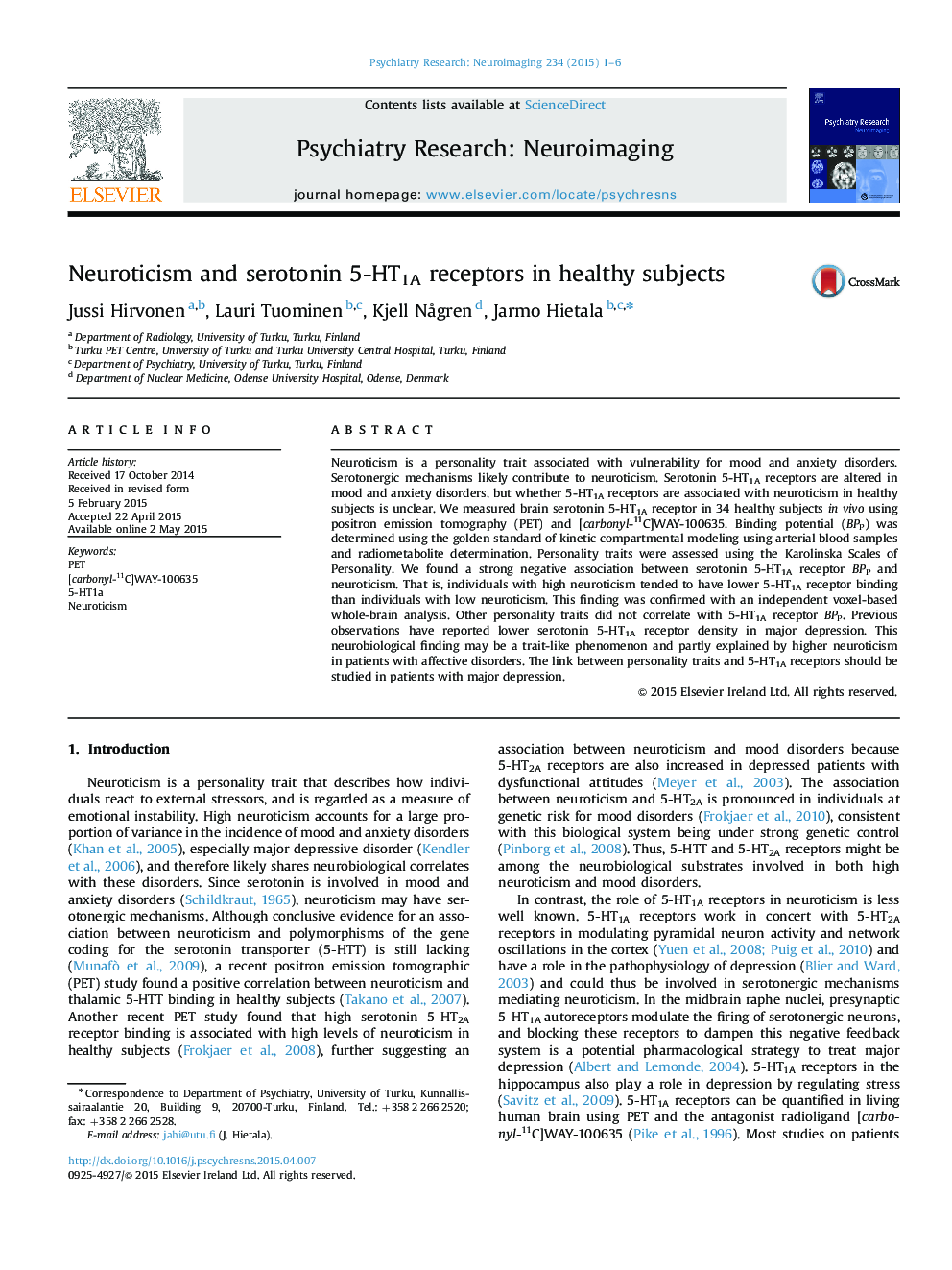| Article ID | Journal | Published Year | Pages | File Type |
|---|---|---|---|---|
| 335255 | Psychiatry Research: Neuroimaging | 2015 | 6 Pages |
•We measured brain serotonin 5-HT1A receptor with PET in 34 healthy subjects.•We used arterial blood samples and radiometabolite determination to measure binding.•High neuroticism correlated with low 5-HT1A receptor binding.•Findings may reflect link between high neuroticism and mood and anxiety disorders.
Neuroticism is a personality trait associated with vulnerability for mood and anxiety disorders. Serotonergic mechanisms likely contribute to neuroticism. Serotonin 5-HT1A receptors are altered in mood and anxiety disorders, but whether 5-HT1A receptors are associated with neuroticism in healthy subjects is unclear. We measured brain serotonin 5-HT1A receptor in 34 healthy subjects in vivo using positron emission tomography (PET) and [carbonyl-11C]WAY-100635. Binding potential (BPP) was determined using the golden standard of kinetic compartmental modeling using arterial blood samples and radiometabolite determination. Personality traits were assessed using the Karolinska Scales of Personality. We found a strong negative association between serotonin 5-HT1A receptor BPP and neuroticism. That is, individuals with high neuroticism tended to have lower 5-HT1A receptor binding than individuals with low neuroticism. This finding was confirmed with an independent voxel-based whole-brain analysis. Other personality traits did not correlate with 5-HT1A receptor BPP. Previous observations have reported lower serotonin 5-HT1A receptor density in major depression. This neurobiological finding may be a trait-like phenomenon and partly explained by higher neuroticism in patients with affective disorders. The link between personality traits and 5-HT1A receptors should be studied in patients with major depression.
